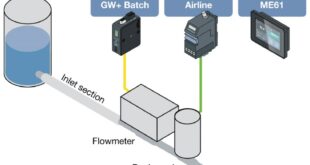In early 2023, Britishvolt, a UK startup, filed for administration after struggling to raise funds for a major electric vehicle (EV) battery factory in northern England. The episode is classed as another damning blow to the UK’s hopes of building a home-grown battery industry, with the country falling further behind in the global race to build batteries. Roger Brereton explores the reasons why start-ups often struggle to bring vehicles to market
According to the Faraday Institution, a clean mobility research group, the UK will need to build five gigafactories by 2030 to supply around 100GWh needed to satisfy the depend for batteries for private cars, commercial vehicles, heavy goods vehicles, buses, micromobility and grid storage. By 2040, it will need ten. As of writing, only one factory is being built, and that’s by Chinese multinational Envision to serve Nissan’s car plant in Sunderland.
However, we are seeing many commercial EV makers struggle financially when kick-starting cell factory projects across the country. Despite a series of business changes and internal restructurings, high profile EV start-ups are either on track to go bust this year or have already significantly cut down on production, owing to dwindling cash reserves and high costs related to production ramp-ups and soaring inflation.
Stuck in neutral
A contributing factor as to why commercial EV start-ups are struggling is in relation to the price of raw materials, such as lithium, which is used to store and provide the electrical energy needed to power the electric drivetrain of trucks and buses.
The Russian war on Ukraine has disrupted oil, natural gas and coal supply chains, exacerbating tightness across metal markets and heating prices for nickel, steel, aluminum, copper and a host of other materials critical to EV manufacturing. As a result, EV makers now face problems securing metals essential to the batteries that power the cars.
In fact, according to Benchmark Mineral Intelligence, its lithium price index had risen by 182.6% year-on-year as of mid-December 2022, meaning that cleaning the world from polluting energy sources is becoming much more expensive.
Semiconductors shortage
Just one vehicle could have thousands of different semiconductors, depending on how advanced and expensive it is. Semiconductors are essential in every EV, be it for infotainment systems or the more basic parts, such as power steering and brakes. The current shortage, which started in 2020, was caused by many factors that include an already disrupted supply chain, geopolitical incidents between the US and China and the fact that major producers paused production at the beginning of the COVID-19 pandemic. Automotive manufacturers cut their orders of all parts and materials, including semiconductors, but the demand rebounded shortly after, leaving them with insufficient stocks.
Many EV companies could not carry on with assembly and could not come back to it when a fresh shipment arrived. In fact, well-known automakers had to halt certain production lines in their factories, including General Motors, Ford Motors, Nissan, Toyota, Volkswagen, Subaru and Fiat Chrysler.
Lacking in design flexibility
When planning to build electric buses and trucks, many of the EV commercial vehicle manufacturers turn to off-the-shelf parts or use their own designs and software.
The issue with off-the-shelf parts is that, despite being readily available, they are mass-produced and made to be versatile and compatible with various applications, meaning that they may not always seamlessly integrate into a specific electric truck or bus design.
Let’s suppose an EV manufacturer is developing a specialised electric delivery truck that requires a unique cabin layout. It would be wise for them to partner with a custom parts manufacturer to expedite the development timeline, especially during a time in which many EV start-ups are financially struggling.
From needing to bring vehicles to market more quickly, to adapting more easily to the changing market conditions, start-ups can support their process of getting started by looking at design flexibility.
Roger Brereton is Head of Sales at steering parts manufacturer Pailton Engineering.
 Engineer News Network The ultimate online news and information resource for today’s engineer
Engineer News Network The ultimate online news and information resource for today’s engineer



